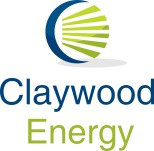
Commercial EPCs
Providing businesses and Commercial Agents with vital information on EPCs, funding and statutory compliance requirements. Claywood Energy can provide the complete range of services required to satisfy all your commercial property needs.
Our service standards allow for a Commercial Energy Assessment to be produced within 5 working days provided that access is available to all parts of the building. All information
relating to heating, ventilation and comfort cooling systems must be available at the time of inspection.
What is a Commercial EPC?
An EPC provides an energy rating for a building based on the performance potential of the building itself. The fabric, the building services (such as heating, ventilation, air-conditioning and lighting), and activities within the building are considered. The Rating is on a scale of A to G, where A is very efficient and G is the least efficient. The more energy-efficient the building is, the lower the fuel bills are likely to be. The energy performance of the building is shown as a Carbon Dioxide (CO2) based index.
A recommendation report is produced with the EPC giving recommendations on how the energy performance of the building could be enhanced, together with an indication of the payback period.
An Energy Performance Certificate is intended to inform potential buyers or tenants about the energy performance of a building. This enables energy efficiency to form part of an investment or business decision to buy or occupy that building.
When is an EPC required?
An EPC is required when a property is offered for sale or let on the open market. The requirement criteria have developed as follows:
A Commercial EPC is valid for 10 years.
What information is required to produce an EPC?
The energy assessor will need to understand the internal layout of the building and for what purposes it is designed to be used. The information required to produce an EPC includes:
- The construction of the fabric of the building and thermal efficiency of the materials used: roof, floors, doors, walls and glazing.
- Information regarding activities within individual spaces or zones of the building along with their dimensions (either as verified from plans or as measured).
- Heating, ventilation, and air conditioning for each zone (including the type of system, metering, controls, and fuels used etc.).
- Lighting type and controls within the spaces or zones.
Energy Efficiency For Business
In order to meet tough carbon reduction targets, the Government is keen to encourage and incentivise companies to reduce their carbon footprint.
The funding criteria for energy efficiency improvements for businesses are constantly changing and Claywood Energy continues to monitor all up-dates.
